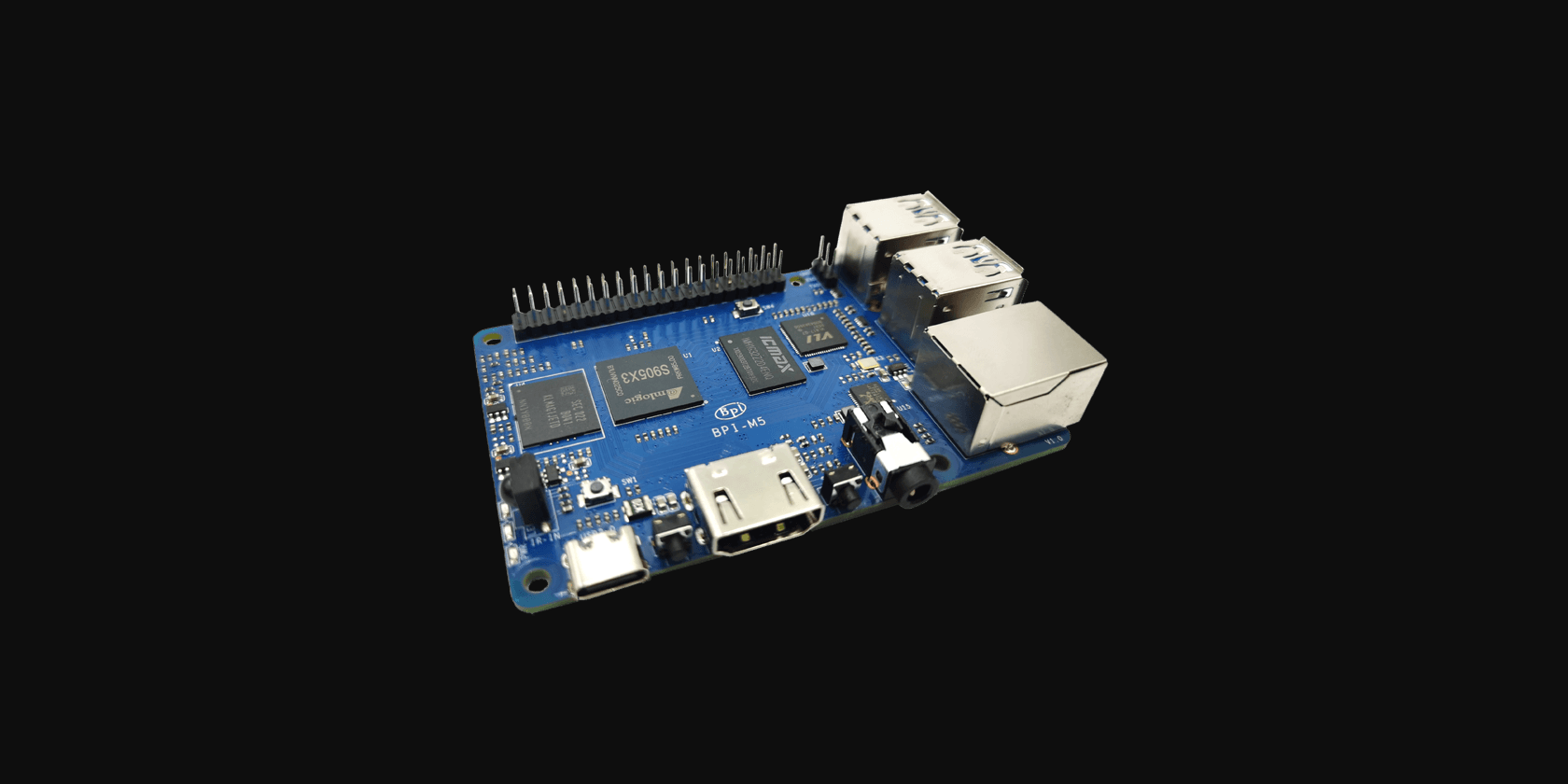Banana Pi has released the BPI-M5, the latest in their line of Raspberry Pi-like single-board computers (SBCs).
The new release is similar to the Raspberry Pi 4 but features 16GB of onboard eMMC flash storage.
Banana Pi BPI-M5: The Raspberry Worrier
Chinese company Shenzhen SinoVoip has released many variations of the Banana Pi over the years, each aiming to give something the Raspberry Pi cannot. Previously, the price was a focus, but now the company seems to be aiming to provide features the official Raspberry Pi line does not.
The Amlogic S905X3 is a quad-core Arm Cortex A55 CPU, comparable to the Pi 4 onboard chip, especially when both are overclocked. The Banana Pi also has 4 GB RAM, putting it at a similar price to the Pi 4's 4 GB variant.
The 40-pin headers for general purpose input/output (GPIO), port setup, and MicroSD card slot are all familiar too. Things differ with the addition of onboard eMMC storage. The 16 GB chip can be used as a stable boot sector or a mountable drive for a traditional MicroSD card boot setup.
You can buy the Banana Pi M5 for $53 from SinoVoip's Aliexpress store.
Banana Pi M5 Specifications
The specs for the BPI-M5 are fairly consistent with other SBCs at this price, but the onboard eMMC storage makes it stand out a little.
- CPU: Amlogic S905X3 Quad-Core Cortex-A55 @ 2 GHz
- GPU: Mali-G31 MP2 GPU @ 650Mhz
- Memory: 4 GB LPDDR4
- Storage: 16G eMMC flash (up to 64GB)MicroSD (up to 256GB)
- Network: 10/100/1000 Ethernet
- Video Out: 1 x HDMI 2.0 (up to 4K@60Hz with HDR, CEC, EDID)
- Audio ports: HDMI3.5mm audio
- USB ports: 4 x USB 3.0
- GPIO: 40 Pin Header : GPIO (x28) and Power (+5V, +3.3V and GND)GPIO pins can be used for UART, I2C, SPI, or PWM
- Switches: Reset. Power, U-boot
- LED: Power Status, Activity status
- Power Source: USB Type-C (5V/3A)
- Dimensions: 92x60mm
- Weight: 48g
- OS support: Android and Linux
Close, But No Banana
Banana Pi has consistently released boards with some kind of edge over the Raspberry Pi. They have also recently released the Banana Pi EAI-80, a $16 dual-core AI computer, so they aren't giving up on being the cheaper alternative any time soon.
The trade-off with regular Banana Pi boards is simple: You don't have the same level of support and community as the Raspberry Pi, but you'll likely get a few more features for your money. The problem is that so-called "premium" SBCs are getting cheaper and more powerful, and there are many more competitors at the budget end.
While the specs on the Banana Pi M5 are impressive, it's becoming harder to stand out in the single board computer market. Beginners looking for something simple will likely get a Pi or Pi 400. Those looking for a multi-purpose SBC might find it hard to resist the Pi 4, or even ODROID-C4, a powerful and similarly priced competitor.
One thing is for sure: If you know your way around Linux SBCs already and are looking for a bargain, this is one of the most reasonably priced SBCs around with onboard eMMC storage.

